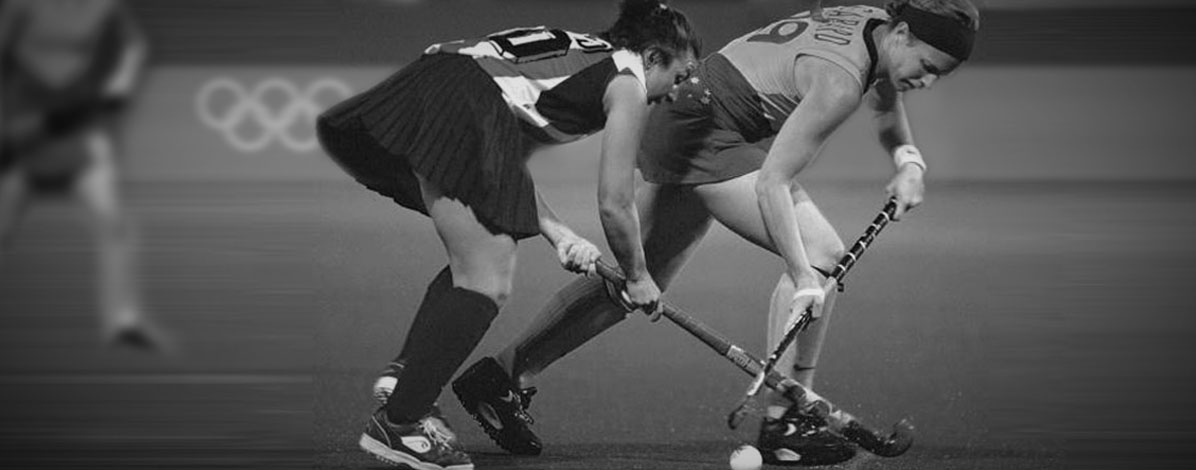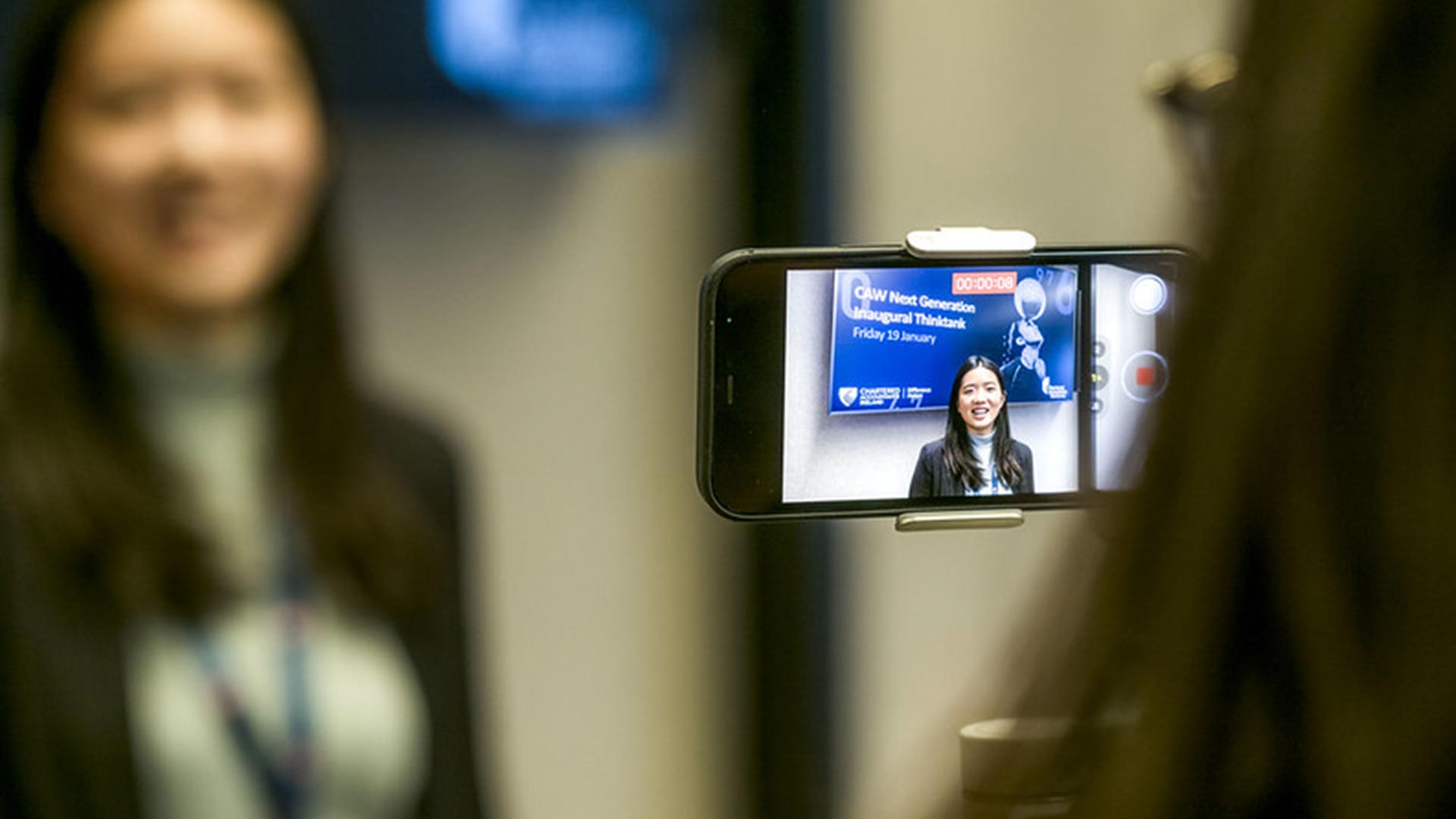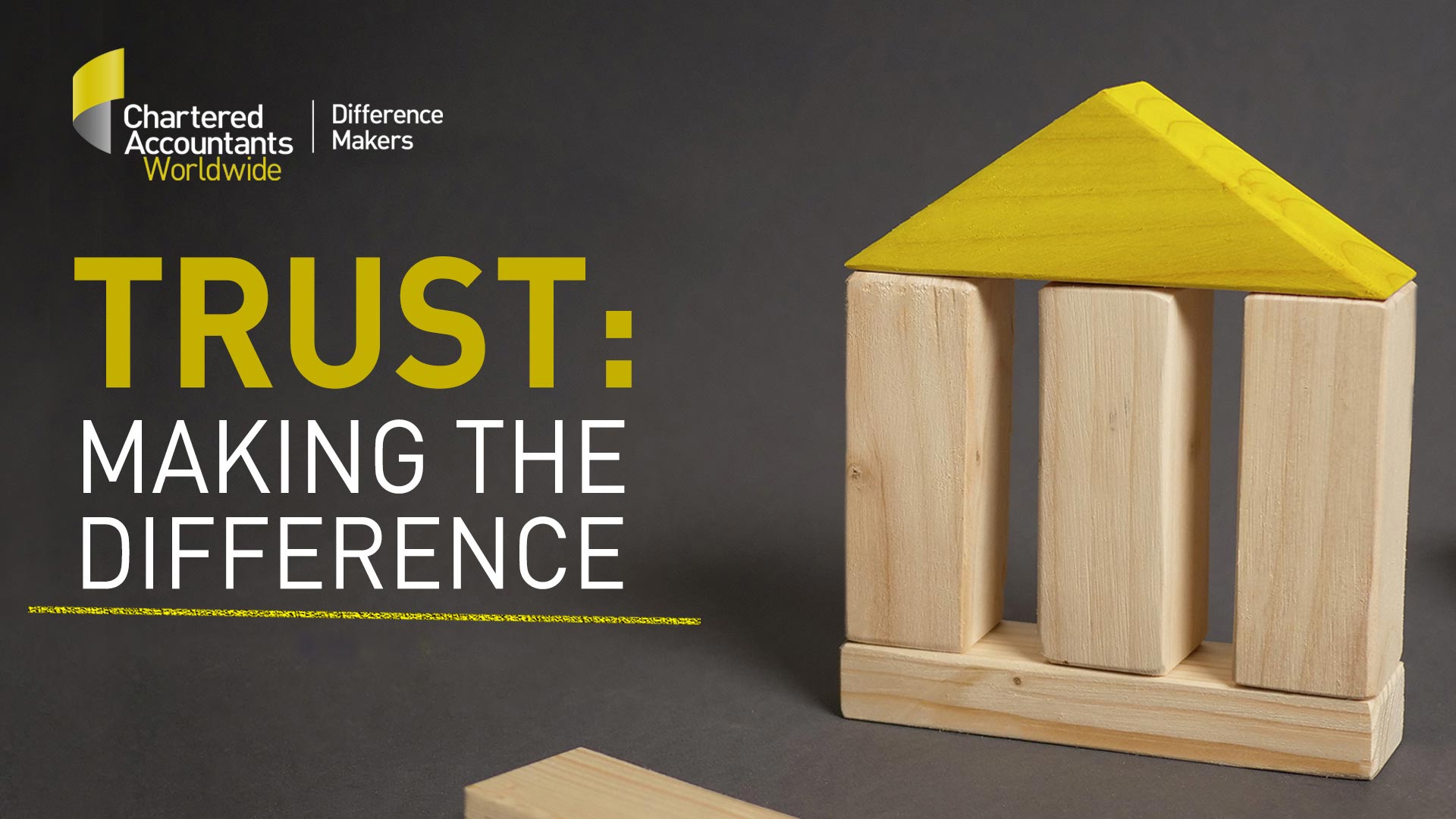Olympic golds and career strongholds


Jennifer Black – Acuity ISSUE 24, August 2016
An Olympic double gold medallist explains why winning was never her goal, why teamwork is vital and the lessons from sport that helped her succeed in the corporate world.
Renita Garard OAM CA started playing hockey at age seven because her cousins were playing and it was something they enjoyed doing together in the backyard.
There was no single point in time when it was recognised she was actually very good, but rather she describes it as “a long journey”. Even as she continued to improve and show real promise she never daydreamed about a medal haul or representing her country.
“I never really dreamed of going to the Olympics. It’s kind of a little bit boring,” she laughs, before revealing what was really driving her.
“I actually just dreamed of being exceptionally good. I loved getting better and better and better at something,” she says.
It was the process and the journey that really motivated Garard.
“I really thrived playing locally and for my region and city. When I was 17 I got a scholarship to the Australian Institute of Sport and that’s probably where it stepped up a level.
It’s this ongoing quest for excellence that has helped her carve a double career as an athlete and a chartered accountant. Queensland-based, Garard is a director at PwC Australia and has a growing governance portfolio, including chairman of the board of Port of Townsville Limited.
Training on the double
While Garard is the first accountant in her family, she was already sure of her career choice as a teenager.
“I’m quite a logical thinker and when I was at secondary school I had the most amazing accounting teacher and I pretty much fell in love with accounting.”
When she got her scholarship to the Australian Institute of Sport in Perth, an intensive training centre for Olympic sports, she had to juggle her tertiary study with hockey training.
She spent ten years attached to the Institute, renting accommodation with other squad members during the year, then returning home to her family in Townsville for Christmas.
“We would train and travel the world playing in tournaments and playing test matches.”
In 1996 Garard went to her first Olympic Games in Atlanta, US, as co-vice captain of Australia’s gold-winning Hockeyroos. She graduated from university that same year.
Then she began working at Arthur Andersen and the firm supported her for the next four years of her sporting career, allowing the flexibility she needed to represent her country in sport.
Juggling sport and university, then work, was “a real balancing act”, with the additional uncertainty of not knowing whether you’d be selected for a tour.
A benefit of working for a large professional firm was there were a number of jobs that could be “picked up and put down” again.
“So I think they found it quite easy to fit me in and I certainly tried, after I’d retired, to speak at a lot of conferences about teamwork and leadership.”
Garard was part of the gold-winning Hockeyroos team at the Sydney Olympics in 2000, but that final was also her final game, and her medals are safely locked away.
“I haven’t played a game of hockey since the gold medal game at the Sydney Olympics.”
She retired from hockey to focus on her career, and her first priority was gaining her chartered accountancy designation.
Team player
Garard says sport gives people discipline.
“That idea of being able to commit to something, get it done and move onto the next thing.”
Having played team sport at an elite level, Garard appreciates the value of the people with whom she is working. In her sports teams people went to exceptional lengths to find the things that drove the outcomes, including getting to know each other very well.
“In sport, you know everything about your teammates. If you’re going to be standing next to them in the Olympic final you have to know everything about them, they have to know everything about you – how you’re going to react in a certain situation, how you’re going to deal with something.”
Garard believes people would achieve better results at work if teams got to know each other better.
“I certainly try with the people I work with to know everything that I can about them because we’re all performing every day – particularly when you’re trying to deliver a project.”
This means discovering what people are striving for and what gives them satisfaction, she says.
Teamwork is part of the reason why governance appeals to her, in addition to a desire to contribute to society.
“Governance is attractive to me because it really is about teamwork. It’s really about how a group of people collectively with executive teams can help guide the use of valuable resources to achieve great outcomes.”
Garard has had input into hockey at an administrative level as a former director of Hockey Australia and a member of the executive of the International Hockey Federation (FIH).
While she was on the board of Hockey Australia the men’s and women’s associations joined and equal pay for male and female players was achieved.
The Olympic experience
Garard’s part of the “golden generation” of Australian hockey history, one of the few women to have won two gold medals in the sport. But she says the Hockeyroos didn’t strive to win medals.
“I think that we strove for the most excellent game that we could actually play and if we did that the result would just take care of itself.”
This focus on continuous improvement was a good standpoint when competing at the Olympics, she says.
“Our team were the favourites for most of it so it would’ve been easy to get distracted by the prize, whereas I found myself focused on processes and the outcome would take care of itself.”
She acknowledges it was a unique experience being the favourites.
“We had to perform to our potential – it was a very pressure cooker, businesslike environment.”
Garard describes competing at the Olympics as being “a bit surreal”, and being “a lot about work” at competition time.
The cultural diversity of the competitors surprised her most. While her team had travelled extensively, they hadn’t been immersed in other cultures while abroad.
With Atlanta being her first Olympics, everything was new, whereas in Sydney in 2000 she had an expectation of the environment, albeit with differing pressures.
“I have really fond memories of both, and particularly Atlanta because it was my first experience.”
The biggest lesson from playing Olympic level hockey that has helped Garard succeed in her professional career is a willingness to learn, develop and improve.
“When you play sport you can’t be prepared to rest on your laurels – everything is about driving for 1% here and 1% there. Because when you go to the Olympic Games, everybody has the same mix of abilities and strengths and it’s about that extra couple of percent – that makes the difference between winning and being shattered.”
Olympic success has also taught her to be grounded, humble and enjoy the journey.
“You never quite know when it’s going to end. You value every experience that you have.”
Rio and beyond
With the countdown to Rio now on, it’s a good time for amateur sports, she says.
She is positive about the Hockeyroos’ chance in Rio.
“We have pretty high expectations that they’ll come home with a medal,” she says, quickly adding: “New Zealand has really stepped up in recent years and is always a competitive team.”
The former Olympian thinks it’s harder for athletes today than it was when she was involved in competitive sport.
“All sports are getting harder, faster, stronger. There’s so much technology involved in sport, there’s a lot of scrutiny. I think for athletes it’s only ever going to get tougher.”
While she empathises, she says athletes “just need to deal with it”, because the prize is worth it.
Additionally, coaches find it more difficult now as athletes have more choice in hockey these days than they did in the past.
For example, she says, they can more easily play in foreign hockey leagues, including a very successful Indian hockey league.
The question is how to manage that with your national duty, Garard says.
“We were kind of like a captive training bunch – we were singularly focused on playing for Australia whereas now there are a lot more commercial pulls on athletes. People say that’s great because it creates a lot more opportunities for them, but it also makes it harder to make balanced decisions and guide their careers.”
And in sport, as in business, reputation is vital.
“Your integrity and your reputation are paramount to your life journey.”
As an athlete she travelled extensively and was treated well and says her team felt they needed to be humble about that.
“We were realistic that it wouldn’t last forever and you have another journey after your sporting life and that you have to take your credibility and your integrity with you. Irrespective of the current job you’re doing, things you do now can impact you for your whole life.
“Sometimes in the Olympic movement there’ll be a bit of a catastrophe for an athlete who hasn’t coped well with transitioning out of their sporting life. But for that story, there’s a hundred other people who actually have.”
Jennifer Black is the deputy editor of Acuity.
For more information visit: Chartered Accountants Australia and New Zealand












